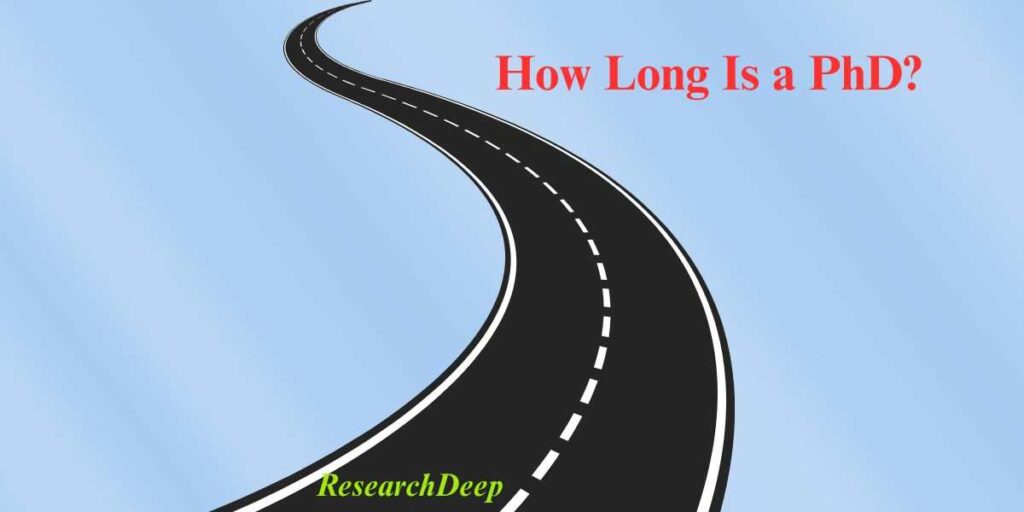Last updated on November 25th, 2025 at 01:18 pm
Table of Contents
Overview
A thought that many aspiring scholars grapple with is the PhD pros and cons.
For students whose primary objective is research, this question would be irrelevant. But others would prefer to weigh the potential benefits and drawbacks before committing their time and money to pursue a PhD.
Some believe that a PhD would eventually lead to working as full-time researchers or university professors in academic settings, while others consider a PhD can offer better job opportunities in related industries.
The objective of this article is to precisely address these questions to give you a better perspective of what to expect and help in making an informed decision.
The 10 PhD Pros And Cons
the 10 PhD Benefits of A PhD
1. Embarking on a PhD journey opens doors to profound intellectual growth, allowing you to deeply engage in your passion for research and expand your knowledge horizons.
2. A PhD offers unparalleled research opportunities to contribute to cutting-edge research in your field. You will be going where no one has been before, as your area of research will be novel.
3. Through rigorous study and focused research, you become a true scholar and specialize in your chosen field. Only you would have mastered this specific dimension of research, making you an authority.
4. A PhD can open doors to a myriad of career opportunities, from academia to industry and beyond. PhD holders are much sought after due to their level of expertise in their field of specialization.
5. There’s an unparalleled sense of personal fulfillment that comes with earning a PhD. After all, it is the highest academic degree.
6. Engaging with a PhD program offers ample networking opportunities to connect with fellow researchers, mentors, and industry professionals worldwide. Your research will be read and referred to by others for generations.
7. Through your research endeavors, you can contribute to the collective body of knowledge in your field with your unique perspective.
8. Beyond academic achievements, pursuing a PhD fosters personal growth and resilience. Living alone and working long hours in a lab will imbibe a sense of patience and hard work.
9. Alongside your academic pursuits, you benefit from mentorship and guidance from seasoned scholars and advisors. Rubbing shoulders with experts in your field of study will widen your horizons.
10. Earning a PhD bestows upon you a sense of prestige and recognition in academia and within your professional circles. You will be well-known for your research and contribution to the existing knowledge base in your field.
The 10 Disadvantages of A PhD
1. Pursuing a PhD demands a significant investment of time and commitment, often spanning several years. You may have to spend long, lonely nights in a lab conducting your research.
2. The average cost of pursuing a doctorate degree, coupled with limited financial support, can create a significant financial strain. It may take you a few years to repay your loans.
3. The demanding nature of doctoral studies can take a toll on your work-life balance, leaving little time for personal pursuits and leisure activities. Your personal life: diet, exercise and relationships will be tested
4. While a PhD opens doors to various career paths, the journey is not always straightforward, and the job market can be competitive.
5. The solitary nature of doctoral research can lead to feelings of isolation and pressure. This is also probably one of the many reasons why some students quit midway.
6. The demanding nature of PhDs can get overwhelming at times and can take a toll on your emotional well-being, leading to stress, anxiety, and burnout.
7. The ‘Publish or Perish’ culture creates constant pressure to publish research papers in established journals that may need additional funding and can create a competitive and cutthroat academic environment.
8. Despite your advanced qualifications, the job market for PhD graduates can be competitive, with limited opportunities for tenure-track positions and academic roles.
9. For many, having to compose a dissertation and successfully defending it can be a daunting proposition.
10. Transitioning out of academia after completing your PhD can pose its own set of challenges, from finding employment outside of academia to adjusting to a new professional identity.
FAQ’s
Is there any benefit of doing PhD?
Your ability to think critically and solve problems will be greatly enhanced by the training and research experience you receive while pursuing a PhD degree. There are personal and professional contexts in which this might be useful. One advantage of a PhD is the extensive information and expertise it imparts.
What are PhD success rates?
Some universities estimate a staggering 71% of PhD candidates do not go on to earn the degree, while others report a far more manageable 9%. There are a lot of variables that affect the percentage of PhD students who do not complete their degrees, including the field in which they are enrolled, their age, and the quality of their mentor.
Is getting a PhD a big achievement?
Notwithstanding the challenges, obtaining a PhD is accompanied by a feeling of status and achievement. Ultimately, is obtaining a PhD considered a significant accomplishment? Without a doubt, the answer is ‘yes’. The entitlement to be referred to as a ‘Doctor’ is undoubtedly a recognition of this accomplishment.
Conclusion
In conclusion, pursuing a PhD is a complex journey filled with both rewards and challenges.
On the positive side, a PhD offers the opportunity for intellectual growth, academic achievement, and the chance to contribute to society through groundbreaking research and getting suitably rewarded for it.
On the downside, it comes with its share of drawbacks, including long hours, financial strain, and uncertainty about future career prospects. It’s important to weigh these pros and cons in the context of your personal circumstances, goals, and aspirations.
A PhD can be a rewarding experience if you have dedication, self-motivation, and a genuine passion for research and knowledge acquisition!




